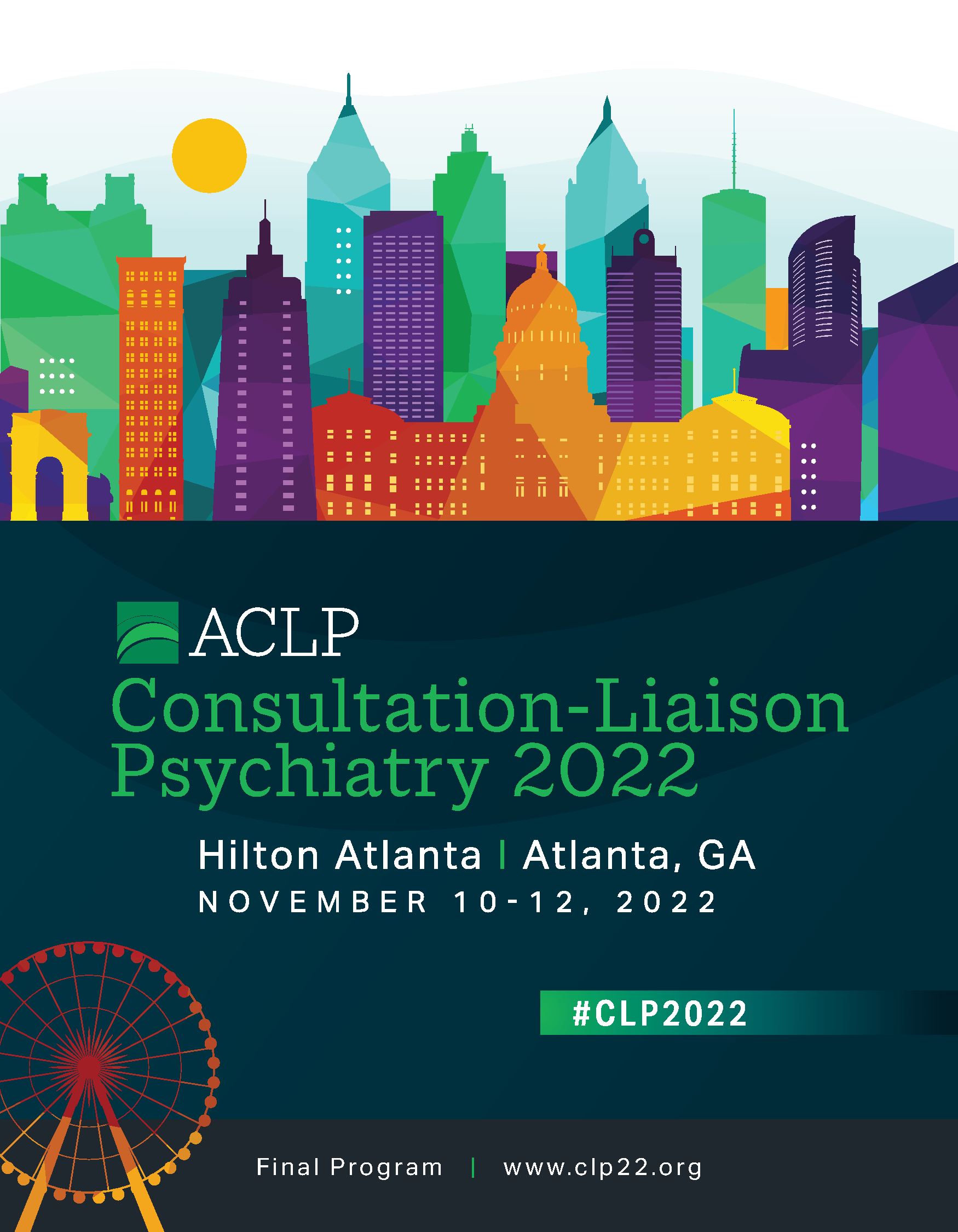Back
Brief Oral Papers
Session: Oral Presentation Session 03: Psycho-oncology and Palliative care; Diversity, Equity and Inclusion
Better Together: Best Practices in Collaboration with Palliative Care Clinicians for Patients at End-of-Life
Friday, November 11, 2022
11:00 AM – 12:30 PM
Location: Room 204-205

Leah Rosenberg, MD
Attending Physician, Division of Palliative Care and Geriatric Medicine
Massachusetts General Hospital/Harvard Medical School
Boston, Massachusetts
Presenting Author(s)
Abstract: Background/Significance: Seriously ill patients often receive consultations from both palliative care and consult-liaison (CL) psychiatric clinicians during end-of-life hospitalizations. Recent investigations have explored the psychological elements of the interdisciplinary palliative care encounter thought to underlie the therapeutic value for patients and families (Temel 2010, Brenner 2021, Shalev 2022, Rosenberg 2022). Both teams may be called to address such symptomatic clinical issues as delirium, including terminal delirium, depressed mood, demoralization, insomnia, and anxiety. Referrals are also made for clarification of patient goals of care and promotion of adaptive coping. In this paper, we hope to establish best practices for collaboration between palliative care and consult-liaison psychiatric clinicians in the care of hospitalized seriously ill patients.
Methods: We performed a review of available resources on Pubmed to demonstrate the paucity of guidance for palliative care-CL collaboration for patients at the end of life. In terms of our institutional approach, programmatic innovations have included the development of a multi-session educational series held in 2019-2020 called “Psychodynamic Teatime” for the palliative care clinicians focusing on essential topics such as attachment, boundaries, formulation/frame, and countertransference. We have also collaborated directly with a faculty CL psychiatrist who provides clinical guidance to palliative care staff on cases featuring psychopharmacologic and interpersonal challenges.
Results: We found 13 distinct citations in Pubmed detailing co-management strategies for palliative care and CL psychiatric clinicians, the majority of which related to patient requests for assisted dying. We propose three main considerations for best practices for palliative-CL collaboration including transitions of active delirium management at end of life from psychiatry to palliative care, close involvement of psychiatric clinicians for seriously ill patients with complex psychopharmacologic regimens, and identification of a dedicated CL faculty member for palliative care teams to address clinical dilemmas.
Discussion: Establishing best practices for psychiatric-palliative care collaboration can optimize the serious illness care for hospitalized patients, particularly for those at end-of-life.
Conclusion/Implications: More research is needed to explore different institutional models of co-management during the trajectory of serious illness.
Methods: We performed a review of available resources on Pubmed to demonstrate the paucity of guidance for palliative care-CL collaboration for patients at the end of life. In terms of our institutional approach, programmatic innovations have included the development of a multi-session educational series held in 2019-2020 called “Psychodynamic Teatime” for the palliative care clinicians focusing on essential topics such as attachment, boundaries, formulation/frame, and countertransference. We have also collaborated directly with a faculty CL psychiatrist who provides clinical guidance to palliative care staff on cases featuring psychopharmacologic and interpersonal challenges.
Results: We found 13 distinct citations in Pubmed detailing co-management strategies for palliative care and CL psychiatric clinicians, the majority of which related to patient requests for assisted dying. We propose three main considerations for best practices for palliative-CL collaboration including transitions of active delirium management at end of life from psychiatry to palliative care, close involvement of psychiatric clinicians for seriously ill patients with complex psychopharmacologic regimens, and identification of a dedicated CL faculty member for palliative care teams to address clinical dilemmas.
Discussion: Establishing best practices for psychiatric-palliative care collaboration can optimize the serious illness care for hospitalized patients, particularly for those at end-of-life.
Conclusion/Implications: More research is needed to explore different institutional models of co-management during the trajectory of serious illness.

